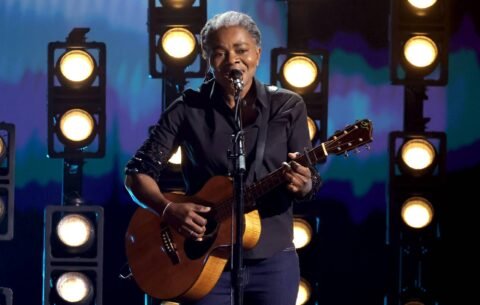
(Credits: Far Out / Alamy)
It’s hard to imagine The Beatles ever playing second fiddle to anyone, but it’s worth keeping in mind that before they were the most famous band in the world, they were just four boys from Liverpool who had to tread the boards and tour the circuits just as any band with hopes of making it to the big leagues. Yes, even they were the support act once upon a time.
That admittedly seems a notion at odds with reality for anyone who doesn’t remember a time before Beatlemania was common parlance—but there were days before swirling psychedelia and becoming worldwide heartthrobs that the Fabs had to work their way up the ranks towards first. That involved a lot of hard graft, putting on gigs up and down the country, often at the behest of other acts.
It goes without saying that these were in the early days before record signings, album releases, and world rapture became the norm; but, nevertheless, The Beatles quickly whipped up a storm on the touring circuit that left it in no doubt that they were set to become megastars. During this time, they supported artists such as Brenda Lee, Helen Shapiro, Little Richard, and The Ronettes on their UK and German shows, where they started turning heads the second they hit the stage.
This energy soon began to eclipse the primary acts, which was not the ideal situation for a second billing, with the Liverpudlian legends often outshining the headliners. Both Tommy Roe and Roy Orbison realised this most pertinently – and graciously – when the Fabs rocked up to go on the road with them. They promptly changed the lineup for the gigs, as in Orbison’s case, promoting them to co-headliners. Thus, a phenomenon was born—but even then, no one knew how large the beast would grow.
How did The Beatles’ experience as an opening act influence them?
However, this is not to say that The Beatles’ egos instantly swelled alongside their burgeoning popularity, as they always took the time to acknowledge those who helped to lay the path before them. This was especially true for the Black artists they first supported and then took inspiration from in the style of their earliest works, including Little Richard and The Ronettes.
These experiences led the band to be outspoken on racism and civil rights issues throughout the 1960s, always championing Black artists and taking a stand wherever they could in their own capacity. The seminal moments of learning the ropes from these singers meant that when the Fab Four soon started staging their own gigs, they had it directly written into their contracts that their audiences were not to be segregated. Subsequently, alongside their music, they became beacons of a seismic societal shift.
In this sense, it’s fair to say that The Beatles’ supporting slots as opening acts were pivotal to their trajectory in more ways than one. It not only allowed them to tread the boards for the first time and catch their initial glimmering tastes of screaming rapture but also significantly shaped their outlook on the world at large and the stance they would take as a band. As a result, while they can undeniably still be considered musical pioneers, it turns out there are many other acts to thank for getting them over the line.
Related Topics





